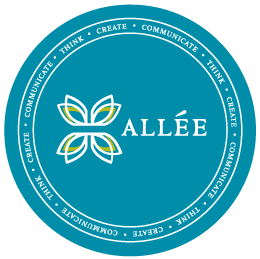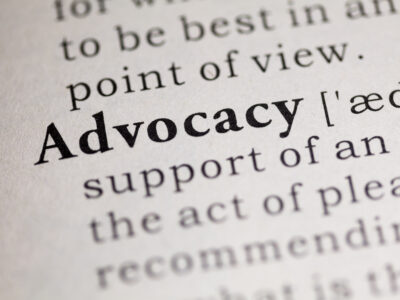Your personal brand is a statement about who you are—your values, how you run your business, your trustworthiness. A personal brand is the unique combination of skills and experiences that make you who you are. Creating that personal brand shows employers, colleagues, investors and potential clients what you stand for and what they can expect.
Brand development on its own can be a challenge—and doing it for yourself can be even more daunting. As you think about how you want to come across in the world, lean on others you trust in your network. Conduct a personal brand exercise and ask them a few of the following questions:
- Describe my professional style in 3-5 words
- Describe my personal style in 3-5 words
- Do you think I mesh personal and professional together? Do I have the same brand/personality for both?
- What sets me apart from others in my industry?
- If you had to define my “brand” what would you say?
- Where/what are my strongest attributes?
Gathering this information is a great starting point to see whether your brand is coming across the way you mean it to, if you’re hitting the mark and what others value about you as a professional. Going through this exercise can help pinpoint things you want to work on and define areas of focus to pull out as you fine-tune your brand and channels for messaging.
From there, work through your personal brand just as you would your business. Sometimes, these are one in the same or very similar, depending on your industry. This is an important aspect of your brand—do you want to set yourself apart from your business or services, do you want to meld together or do you want to appear as one in the same? There are benefits of each of those scenarios; before deciding, consider:
- Do you plan to hire a team (or have one already) whereby it would make sense to keep a bit of separation between you and your company brand?
- What is your exit or succession plan? Do you want to sell the business or close things up upon retirement?
- If you are a solopreneur, are you comfortable with the company/brand being synonymous with you, the person?
Upon going through the above exercises, take the next steps in defining your personal brand.
5 ways to develop your personal brand
Specify your niche
Define how to showcase your niche in ways that everyone can understand, including those that don’t have the same set of skills. For you to stand out, identify what makes you unique and dig deeper. For example, if you specialize in interior design, narrow down your type and what sets you apart. Do you excel in modern design vs. traditional? Do you prefer to design corporate settings vs. personal homes? Whatever it might be, define your specialty and services as a way to hone in on your brand’s niche. It’s better to be great at a select few than to be mediocre at everything.
Be personable
It’s OK (and encouraged!) to showcase your personal interests and values. This helps show others that you are a real person with interests; that you are human. It’s a way for others to see themselves in you, to connect and to trust you. Authenticity is key. You can do this in a variety of ways, but one way that I meld my personal and professional brand is to share not only when I’m working on as part of my company or book of clients, but also about my family and activities that I love. I am selective on which channels (or to whom) I share that information, but I do share it as a way to connect with others and learn about their interests, too.
Create a strong bio
Writing about ourselves is hard. It’s not often that you’ll find someone who likes to do it and when we write about ourselves we typically miss the best parts that others see. My tip? Hire a writer to craft your bio for you – and in a few different character counts and formats. That way, you don’t have to trim it down or start from scratch the next time you need to provide one.
Hit the key points of who you are, what you do and what makes you unique. Share accolades, years in business/your industry and something that will leave the audience wanting to learn more about you.
Interview Kickstart shared several examples on how to write a strong personal bio, here are a few:
- Start by giving your introduction
- Share your biggest achievements
- Keep it simple and concise
Build your online content library
If writing isn’t for you, jump down to the next tip. I can’t say that building an online content library is for every entrepreneur. But it does help build credibility and give you a platform to showcase your work, your skills and what you know about your industry.
This can be through pictures, an online portfolio or a blog. Housing content online that is specific to you as a business owner creates omni-channel representation of your brand with the potential to attract new prospects and customers, educators, conference and event planners, and the media.
Network
After 16 years as an entrepreneur and 20+ years in my industry, there is one thing I can unequivocally recommend to other business owners: network.
Nothing beats in-person networking but that is not the only way to get involved. Zoom meet-ups, Twitter Chats, Facebook Live, Instagram Live – all of these are great ways to set yourself up to connect with others in and outside of your industry. Networking can provide you the opportunity to learn with and from others—your peers, customers, other business owners. It’s also a great way to give back and provide mentorship to those starting out. If you’re not a huge networker, dip your toe in the waters by getting a few of your social media channels in check so that when others look for you, they’ll see your best and be more likely to connect (because I get it, sometimes it takes others to reach out first). My tip: Start with LinkedIn and work your way to other social media networks from there. Or don’t – it’s completely your call on whether you want to open up the social media can of worms to those in and outside of your professional network. For me, I keep LinkedIn and Twitter open for business (no pun intended) but Facebook and Instagram are strictly personal/private channels.
Building your personal brand is a continuous process but one that is important as we continue to also build our businesses. And if you’re stuck, reach out. I’m happy to connect and chat through your questions—and my team is always available to help you develop and move your personal brand to the next level.



